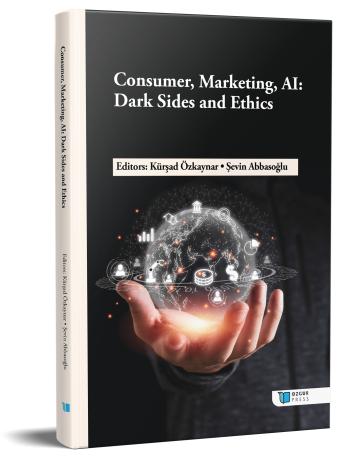
The Erosion of Consumer Autonomy
Chapter from the book:
Özkaynar,
K.
&
Abbasoğlu,
Ş.
(eds.)
2025.
Consumer, Marketing, AI: Dark Sides and Ethics.
Synopsis
Consumer autonomy refers to an individual's capacity to make decisions independently, based on their own values, needs, and informed evaluations, free from external pressures. However, with digitalization, the use of big data, and marketing strategies driven by algorithms, this autonomy is increasingly eroding. Although today's consumers believe they are making conscious choices, they are, in fact, unbeware manipulated through personalized advertisements, AI-powered recommendation systems, and neuromarketing techniques. The erosion of consumer autonomy is not limited to advertising and marketing strategies but is also supported by algorithmic guidance, digital ecosystems that encourage constant consumption, and psychological manipulation tools. This phenomenon weakens consumers' ability to make rational decisions, promotes overconsumption, and fosters a sense of dissatisfaction.
This study aims to highlight the significance of consumer autonomy by examining its erosion process and its effects on consumer behavior. Furthermore, it discusses the disruptions in consumers' decision-making mechanisms, ethical concerns, and potential violations of consumer rights. The limited number of systematic studies on consumer autonomy in the literature emphasises the contribution of this research to the field and highlights the relevance of the topic within the dynamics of contemporary consumption.

